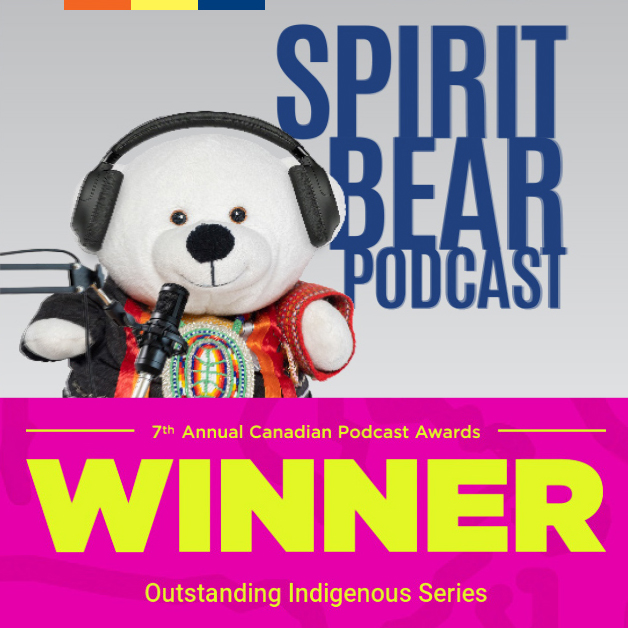Le balado de Spirit Bear
Le balado de Spirit Bear vise à aider à mobiliser les connaissances qui favorisent le mieux-être des enfants, des jeunes, des familles et des collectivités des Premières Nations.
La saison 1: L'apprentissage avec les élèves de l'Université d'Ottawa
La Société de soutien est très reconnaissante envers les étudiants du cours « La politique autochtone au Canada » de Dr Veldon Coburn à l'Université d'Ottawa, qui ont produit la première saison. Les étudiants ont interviewé des universitaires, des politiciens et des activistes qui travaillent à l'avancement de la justice pour les Premières nations, les Métis et les Inuits.
Vous pouvez trouver tous les épisodes sur les principales applications de diffusion de balados ou en cliquant sur le bouton.
La saison 2 : Série « Demandez à un expert ».
La saison 2 du balado de Spirit Bear - notre série « Demandez à un expert » - propose des entretiens entre Dr Cindy Blackstock et divers experts dans le domaine du mieux-être des enfants. L'objectif de ces épisodes est d'approfondir les solutions fondées sur des données probantes pour soutenir les jeunes des Premières Nations et leurs familles en dissipant les mythes courants et en examinant ce qui fonctionne réellement.
Chaque entrevue est accompagnée d'une fiche d'information rédigée par les experts eux-mêmes.
La saison 3 : Conversation Courageuses
La saison 3 du podcast Spirit Bear présente des conversations courageuses avec Dre Cindy Blackstock, ainsi que des co-animateurs invités spéciaux et divers experts en bien-être des enfants et des familles. Cette saison, nous parlons de ce que vous devez savoir pour prendre de bonnes décisions sur le terrain pour les enfants, les jeunes et les familles, et de la manière dont nous pouvons rester responsables envers eux.

